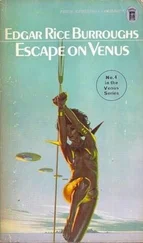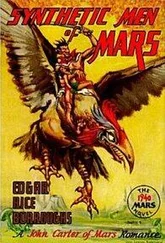Edgar Burroughs - Pirates of Venus
Здесь есть возможность читать онлайн «Edgar Burroughs - Pirates of Venus» весь текст электронной книги совершенно бесплатно (целиком полную версию без сокращений). В некоторых случаях можно слушать аудио, скачать через торрент в формате fb2 и присутствует краткое содержание. Жанр: Фантастика и фэнтези, на английском языке. Описание произведения, (предисловие) а так же отзывы посетителей доступны на портале библиотеки ЛибКат.
- Название:Pirates of Venus
- Автор:
- Жанр:
- Год:неизвестен
- ISBN:нет данных
- Рейтинг книги:4 / 5. Голосов: 1
-
Избранное:Добавить в избранное
- Отзывы:
-
Ваша оценка:
- 80
- 1
- 2
- 3
- 4
- 5
Pirates of Venus: краткое содержание, описание и аннотация
Предлагаем к чтению аннотацию, описание, краткое содержание или предисловие (зависит от того, что написал сам автор книги «Pirates of Venus»). Если вы не нашли необходимую информацию о книге — напишите в комментариях, мы постараемся отыскать её.
Pirates of Venus — читать онлайн бесплатно полную книгу (весь текст) целиком
Ниже представлен текст книги, разбитый по страницам. Система сохранения места последней прочитанной страницы, позволяет с удобством читать онлайн бесплатно книгу «Pirates of Venus», без необходимости каждый раз заново искать на чём Вы остановились. Поставьте закладку, и сможете в любой момент перейти на страницу, на которой закончили чтение.
Интервал:
Закладка:
With a single movement of a lever I loosed the remaining parachutes; then I turned to the outer door. Its bolts were controlled by a large wheel set in the center of the door and were geared to open quickly and with ease. I adjusted the mouthpiece of the oxygen line across my lips and quickly spun the wheel.
Simultaneously the door flew open and the air pressure within the torpedo shot me out into space. My right hand grasped the rip cord of my chute; but I waited. I looked about for the torpedo. It was racing almost parallel with me, all its parachutes distended above it. Just an instant's glimpse I had of it, and then it dove into the cloud mass and was lost to view; but what a weirdly magnificent spectacle it had presented in that brief instant!
Safe now from any danger of fouling with the torpedo, I jerked the rip cord of my parachute just as the clouds swallowed me. Through my fleece-lined suit I felt the bitter cold; like a dash of ice water the cold clouds slapped me in the face; then, to my relief, the chute opened, and I fell more slowly.
Down, down, down I dropped. I could not even guess the duration, nor the distance. It was very dark and very wet, like sinking into the depths of the ocean without feeling the pressure of the water. My thoughts during those long moments were such as to baffle description. Perhaps the oxygen made me a little drunk; I do not know. I felt exhilarated and intensely eager to solve the great mystery beneath me. The thought that I was about to die did not concern me so much as what I might see before I died. I was about to land on Venus—the first human being in all the world to see the face of the veiled planet.
Suddenly I emerged into a cloudless space; but far below me were what appeared in the darkness to be more clouds, recalling to my mind the often advanced theory of the two cloud envelopes of Venus. As I descended, the temperature rose gradually, but it was still cold.
As I entered the second cloud bank, there was a very noticeable rise in temperature the farther I fell. I shut off the oxygen supply and tried breathing through my nose. By inhaling deeply I discovered that I could take in sufficient oxygen to support life, and an astronomical theory was shattered. Hope flared within me like a beacon on a fog-hid landing field.
As I floated gently downward, I presently became aware of a faint luminosity far below. What could it be? There were many obvious reasons why it could not be sunlight; sunlight would not come from below, and, furthermore, it was night on this hemisphere of the planet. Naturally many weird conjectures raced through my mind. I wondered if this could be the light from an incandescent world, but immediately discarded that explanation as erroneous, knowing that the heat from an incandescent world would long since have consumed me. Then it occurred to me that it might be refracted light from that portion of the cloud envelope illuminated by the Sun, yet if such were the case, it seemed obvious that the clouds about me should be luminous, which they were not.
There seemed only one practical solution. It was the solution that an earth man would naturally arrive at. Being what I am, a highly civilized creature from a world already far advanced by science and invention, I attributed the source of this light to these twin forces of superior intelligence. I could only account for that faint glow by attributing it to the reflection upon the under side of the cloud mass of artificial light produced by intelligent creatures upon the surface of this world toward which I was slowly settling.
I wondered what these beings would be like, and if my excitement grew as I anticipated the wonders that were soon to be revealed to my eyes, I believe that it was a pardonable excitement, under the circumstances. Upon the threshold of such an adventure who would not have been moved to excitement by contemplation of the experiences awaiting him?
Now I removed the mouthpiece of the oxygen tube entirely and found that I could breathe easily. The light beneath me was increasing gradually. About me I thought I saw vague, dark shapes among the cloud masses. Shadows, perhaps, but of what? I detached the oxygen tank and let it fall. I distinctly heard it strike something an instant after I had released it. Then a shadow loomed darkly beneath me, and an instant later my feet struck something that gave beneath them.
I dropped into a mass of foliage and grasped wildly for support. A moment later I began to fall more rapidly and guessed what had happened; the parachute had been uptilted by contact with the foliage. I clutched at leaves and branches, fruitlessly, and then I was brought to a sudden stop; evidently the chute had fouled something. I hoped that it would hold until I found a secure resting place.
As I groped about in the dark, my hand finally located a sturdy branch, and a moment later I was astride it, my back to the bole of a large tree—another theory gone the ignoble path of countless predecessors; it was evident that there was vegetation on Venus. At least there was one tree; I could vouch for that, as I was sitting in it, and doubtless the black shadows I had passed were other, taller trees.
Having found secure lodgment, I divested myself of my parachute after salvaging some of its ropes and the straps from the harness, which I thought I might find helpful in descending the tree. Starting at the top of a tree, in darkness and among clouds, one may not be positive what the tree is like nearer the ground. I also removed my goggles. Then I commenced to descend. The girth of the tree was enormous, but the branches grew sufficiently close together to permit me to find safe footing.
I did not know how far I had fallen through the second cloud stratum before I lodged in the tree nor how far I had descended the tree, but all together it must have been close to two thousand feet; yet I was still in the clouds. Could the entire atmosphere of Venus be forever fog laden? I hoped not, for it was a dreary prospect.
The light from below had increased a little as I descended, but not much; it was still dark about me. I continued to descend. It was tiresome work and not without danger, this climbing down an unfamiliar tree in a fog, at night, toward an unknown world. But I could not remain where I was, and there was nothing above to entice me upward; so I continued to descend.
What a strange trick fate had played me. I had wanted to visit Venus, but had discarded the idea when assured by my astronomer friends that the planet could not support either animal or vegetable life. I had started for Mars, and now, fully ten days before I had hoped to reach the red planet, I was on Venus, breathing perfectly good air among the branches of a tree that evidently dwarfed the giant Sequoias.
The illumination was increasing rapidly now the clouds were thinning; through breaks I caught glimpses far below, glimpses of what appeared to be an endless vista of foliage, softly moonlit—but Venus had no moon. In that, insofar as the seeming moonlight was concerned, I could fully concur with the astronomers. This illumination came from no moon, unless Venus's satellite lay beneath her inner envelope of clouds, which was preposterous.
A moment later I emerged entirely from the cloud bank, but though I searched in all directions, I saw nothing but foliage, above, around, below me, yet I could see far down into that abyss of leaves. In the soft light I could not determine the color of the foliage, but I was sure that it was not green; it was some light, delicate shade of another color.
I had descended another thousand feet since I had emerged from the clouds, and I was pretty well exhausted (the month of inactivity and overeating had softened me), when I saw just below me what appeared to be a causeway leading from the tree I was descending to another adjacent. I also discovered that from just below where I clung the limbs had been cut away from the tree to a point below the causeway. Here were two startling and unequivocal evidences of the presence of intelligent beings. Venus was inhabited! But by what? What strange, arboreal creatures built causeways high among these giant trees? Were they a species of monkey-man? Were they of a high or low order of intelligence? How would they receive me?
Читать дальшеИнтервал:
Закладка:
Похожие книги на «Pirates of Venus»
Представляем Вашему вниманию похожие книги на «Pirates of Venus» списком для выбора. Мы отобрали схожую по названию и смыслу литературу в надежде предоставить читателям больше вариантов отыскать новые, интересные, ещё непрочитанные произведения.
Обсуждение, отзывы о книге «Pirates of Venus» и просто собственные мнения читателей. Оставьте ваши комментарии, напишите, что Вы думаете о произведении, его смысле или главных героях. Укажите что конкретно понравилось, а что нет, и почему Вы так считаете.









